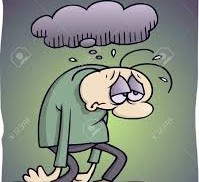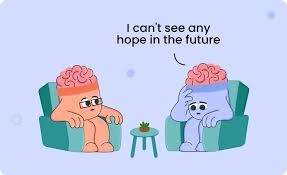Understanding Depression and Finding Paths to Healing


What is Depression and Why Does it Matter?
When people feel sadness, it usually fades with time. Depression is different because it is a lasting condition that affects both the mind and the body. People with depression often describe it as carrying a heavy weight every day, making simple activities feel impossible. It is not just about emotions; depression changes the way the brain and body respond to stress, motivation, and pleasure. The importance of recognizing depression lies in its ability to slowly impact many areas of life if left unaddressed.
Some key points:
- Depression lasts for weeks or months, not just a day or two.
- It can lead to loss of interest in things once enjoyed.
- It is a serious condition but also treatable.
Depression matters because it touches many areas of life and can reduce quality of living.
Common Signs People Notice
Depression can appear in different ways for different people, which sometimes makes it hard to recognize. While one person may feel constant sadness, another might feel nothing at all, like being emotionally numb. It can change sleeping and eating habits, energy levels, and the ability to connect with others. Because the signs are often subtle in the beginning, many people do not realize they are dealing with depression until it grows stronger. Recognizing these patterns early can help prevent the condition from getting worse.
Some common signs include:
- Feeling sad, hopeless, or empty most of the day.
- Sleeping too much or too little.
- Feeling tired even after resting.
- Difficulty focusing or making decisions.
- Loss of appetite or eating more than usual.
These signs should not be ignored, because recognizing them is the first step in seeking help.
Possible Reasons Behind Depression
Depression is not caused by one single reason. It is usually the result of a combination of personal experiences, biological changes, and outside pressures. Some people may face depression after a stressful or painful life event, while others might experience it without any clear reason. This can make depression confusing and hard to explain. Understanding possible causes does not remove the problem, but it helps both patients and doctors make sense of it and find the right support.
Possible reasons may include:
- Stressful life events such as loss, trauma, or financial struggles.
- Family history of mood problems.
- Changes in brain chemicals that control mood.
- Long-term illnesses or chronic pain.
Understanding the causes can help in finding better ways to manage and treat depression.
Effects on Daily Living
Depression is not just an internal struggle; it affects how people move through the world every single day. Someone with depression may feel like life has slowed down, making even small tasks like cooking, cleaning, or getting ready seem overwhelming. Work and school performance may suffer, and relationships can become strained because of withdrawal or irritability. Physical health also takes a hit, as the body reacts to the stress and exhaustion depression brings. These challenges show why depression is not simply a state of mind but a condition that influences the entire lifestyle of a person.
Some of the main effects are:
- Struggles to finish tasks at work or school.
- Less interest in spending time with family or friends.
- Problems with memory and focus.
- Physical issues like headaches or stomach problems.
These effects show that depression is not just about mood. It has wide impacts on a person’s health and daily comfort.
Ways to Cope with Depression Naturally
Even though medical treatment can play an important role, many people can also benefit from small but meaningful lifestyle changes. Natural ways to cope are not meant to replace medical help, but they can reduce the weight of depression and make daily life more manageable. Activities that calm the mind, strengthen the body, and provide comfort are especially helpful. Building supportive routines may not erase depression, but they can give a person more strength to deal with it and even speed up recovery when used along with therapy or medicine.
Helpful steps include:
- Talking openly with trusted friends or family.
- Taking regular walks or light exercise.
- Eating balanced meals and avoiding too much sugar or alcohol.
- Keeping a routine with enough sleep.
- Practicing relaxing activities such as reading, music, or meditation.
These actions alone may not cure depression but can give strength and support healing.
Medical Support and Therapy
When natural steps do not fully help, medical support is often the next important step. Doctors may recommend therapy, medicine, or a combination of both. Therapy offers a safe space to talk about feelings, explore negative thought patterns, and learn healthier ways to respond to stress. Medicines can support recovery by balancing brain chemicals that influence mood and energy levels. Professional help ensures that treatment is tailored to the person’s specific needs, and it provides guidance that makes the process less overwhelming.
Options may include:
- Talking therapy with a counselor or psychologist.
- Group therapy where people share experiences and support one another.
- Prescribed medicines that help balance mood.
Professional support gives structured help and guidance, making it easier to move forward.
Role of Medicines like Anafranil (Clomipramine HCI)
For many people, therapy and lifestyle changes may not be enough. In such cases, doctors may recommend medicines to help restore emotional balance. Anafranil (Clomipramine HCI) is one option that has been used for many years in treating depression. This medicine works by improving communication between certain brain cells that influence mood and thoughts. It has also been found helpful for reducing unwanted thoughts and easing severe anxiety linked with depression. While it may take time to see the full effect, many patients experience gradual relief that allows them to return to normal life activities.
Key points about Anafranil:
- It is given to people with strong or lasting depression.
- It may also reduce feelings of fear or unwanted thoughts.
- Doctors usually start with small doses and adjust as needed.
Anafranil is not a quick fix, but with time and proper medical guidance, it can help many patients regain stability.
Moving Forward with Treatment
Long-term recovery from depression requires patience and dedication. Even after symptoms improve, it is important to continue treatment to prevent relapse. Medicines such as Anafranil (Clomipramine HCI), when combined with therapy and healthy daily habits, give people a stronger chance of maintaining balance. Stopping treatment too early or ignoring doctor’s instructions can bring back symptoms. This is why medical follow-up, regular check-ins, and steady routines are crucial in the recovery journey.
Important reminders:
- Always follow the doctor’s directions for medicine use.
- Do not stop treatment suddenly without medical advice.
- Continue healthy daily activities to support recovery.
Treatment is a journey that requires patience, but with steady care, recovery becomes possible.
Final Thoughts
Depression is more than sadness. It is a condition that affects thoughts, actions, health, and relationships. By learning the signs, understanding the causes, and knowing when to seek help, people can take the first steps toward healing. Natural coping strategies, therapy, and medicines like Anafranil (Clomipramine HCI) together provide a full circle of support. With patience, guidance, and care, recovery is possible, and life can feel balanced again.
Drug Description Sources: U.S. National Library of Medicine, Drugs.com, WebMD, Mayo Clinic, RxList
Reviewed and Referenced By:
- Dr. Alan Carter, Clinical Pharmacist
Frequently cited on Drugs.com and RxList for reviewing therapeutic guidance on antidepressant medicines, including details on Clomipramine’s safety profile and dosage.
- Dr. Emily Johnson, Psychiatrist
Provides expert commentary on WebMD and Mayo Clinic articles, focusing on therapy and medical treatment options for depression.
- Dr. Michael Thompson, Family Physician
Contributes to patient education resources on Mayo Clinic and RxList, highlighting lifestyle approaches that support antidepressant treatment.
- Dr. Sarah Lee, Clinical Psychologist
Referenced in WebMD materials, emphasizing the role of counseling and behavioral strategies as complements to medicine.
- Dr. Robert Miller, Neurologist
Reviewed information in the U.S. National Library of Medicine regarding how brain chemical activity is linked with mood disorders and how medicines such as Clomipramine influence these processes.
Article Post: Editorial Team of RXShop.md
(Updated at Sep 20 / 2025)

